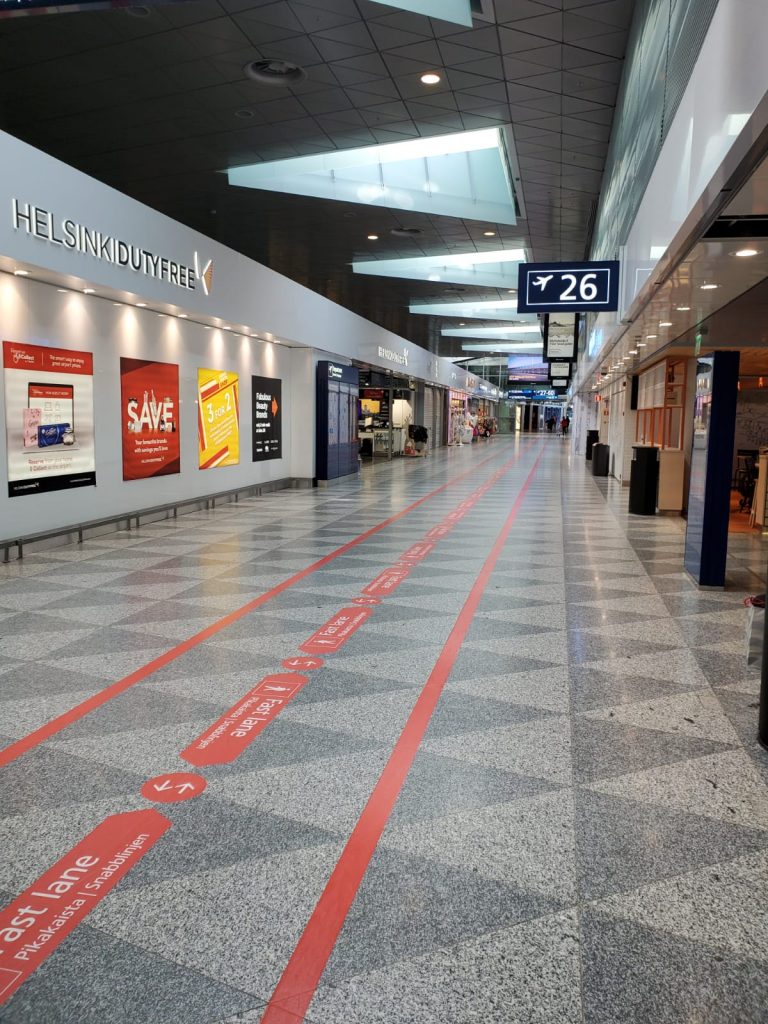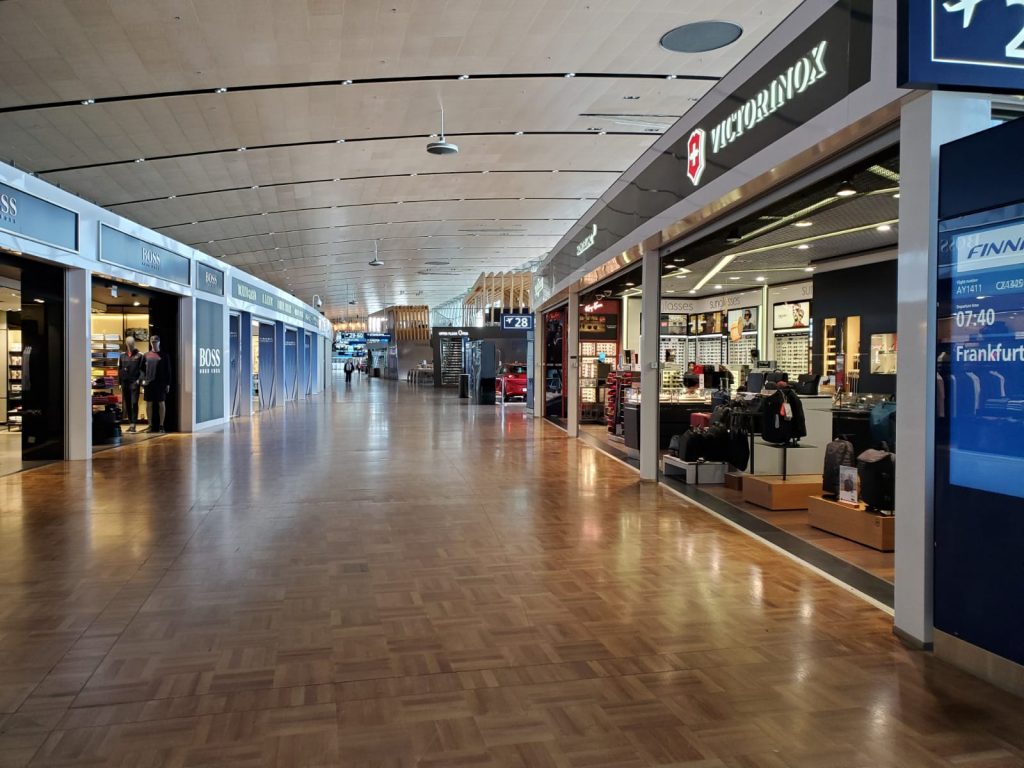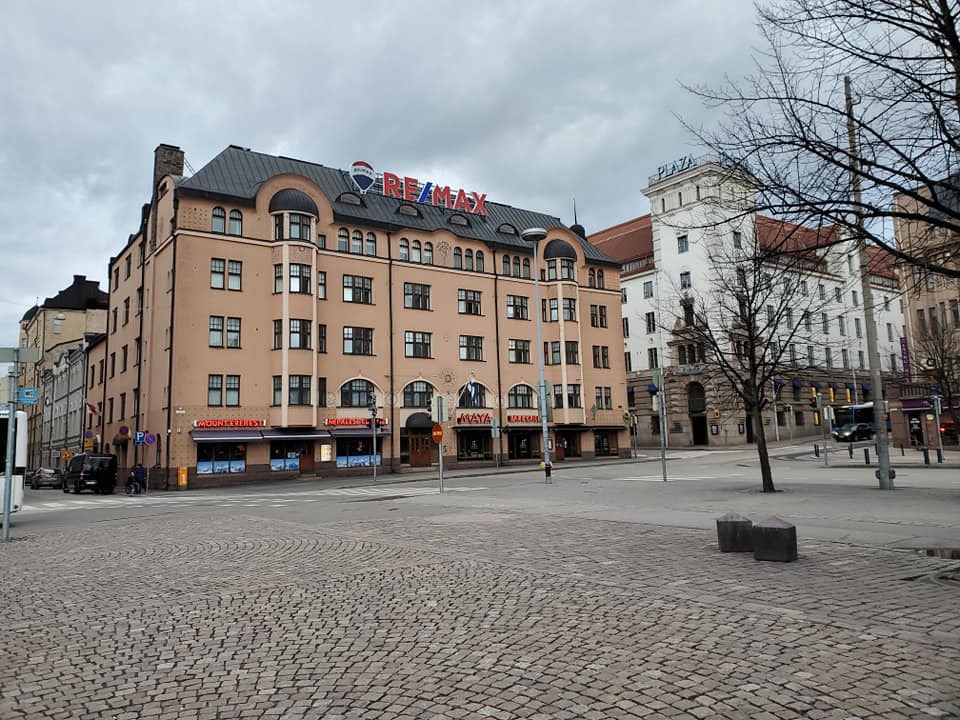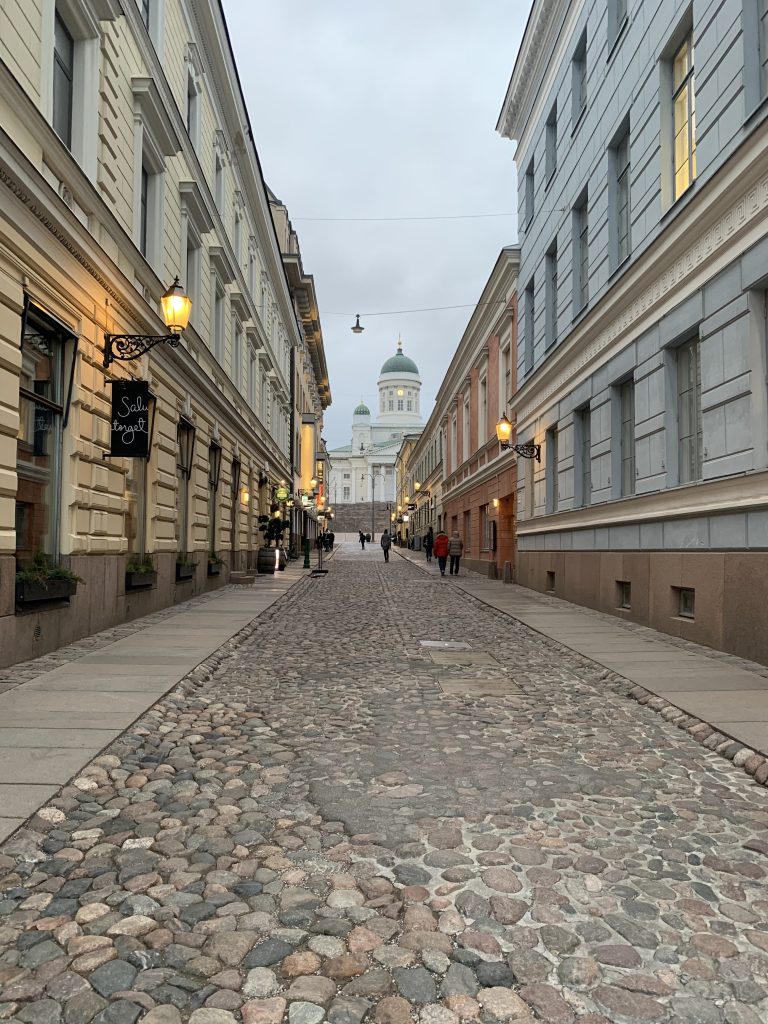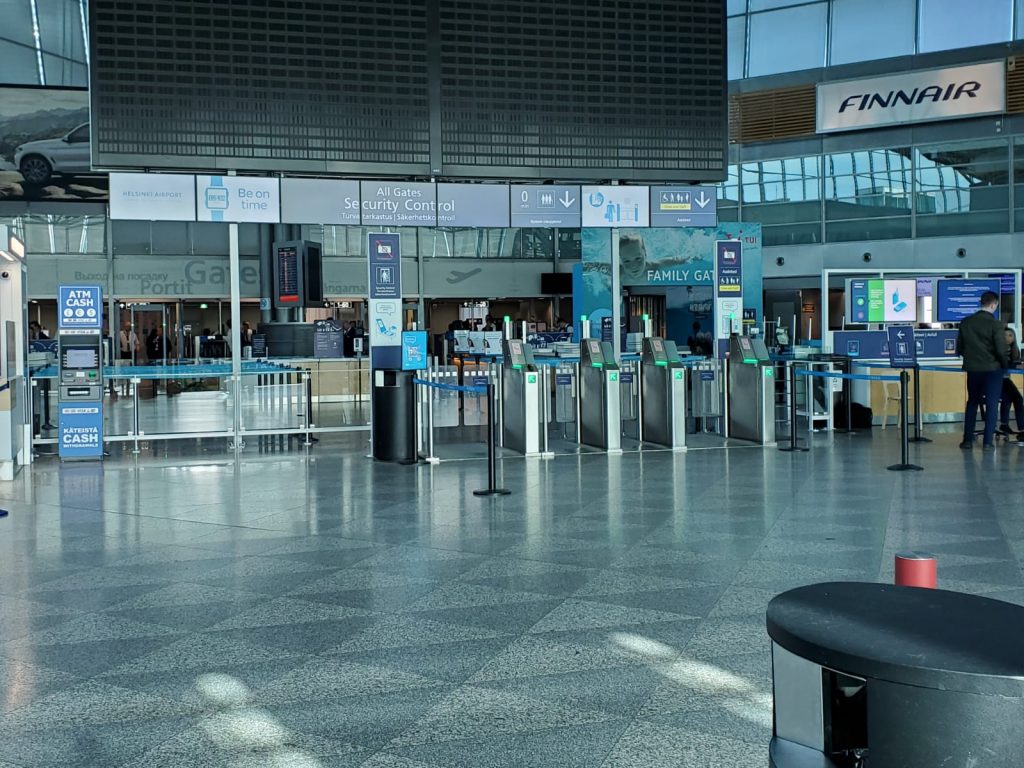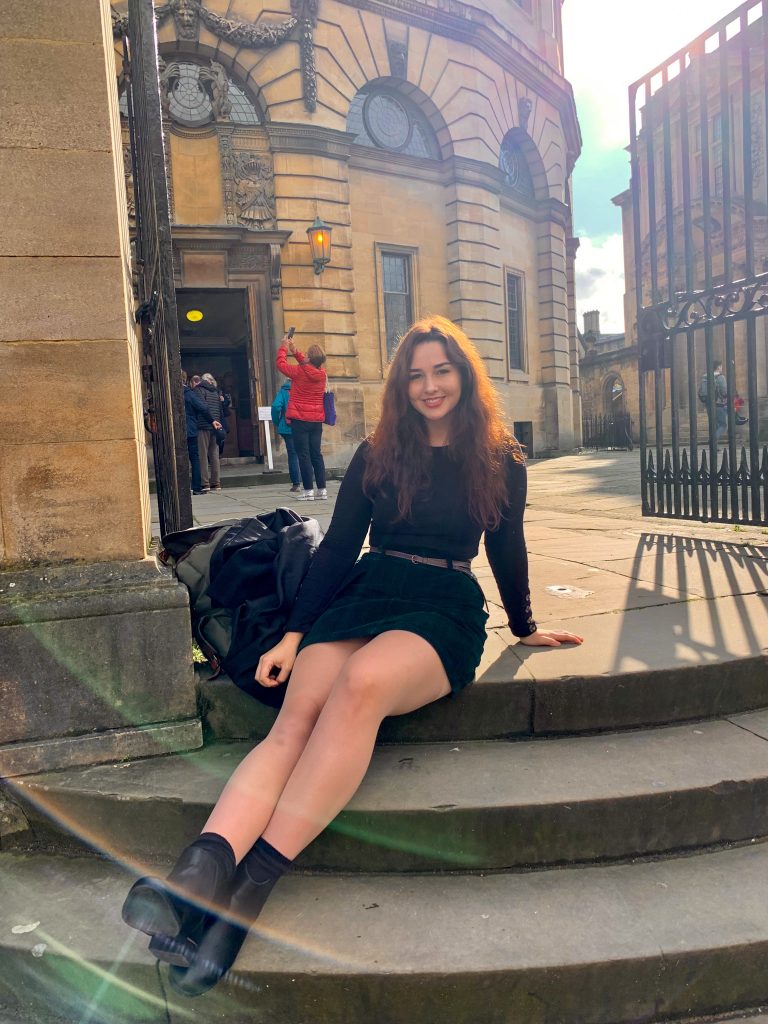
Christina Kirk, junior international relations and Oxbridge: Institutions and Policy major, has been studying at Oxford’s Mansfield College. Because Kirk lives in New York – a COVID-19 epicenter – she is the only Oxbridge student who has stayed in residence in Oxford.
“Over the 5-week break, I had planned to reside in my Mansfield [College] accommodations as a base, while taking a few approximately weeklong trips. I planned to spend about five days in Finland with my mom during the first week of break. I’d then stay in Oxford for about a week and a half before embarking on a ten-day trip with Catherine Dema [junior physics and Oxbridge: History of Ideas major], which we had planned to take to Amsterdam and Italy – Florence, Rome and Venice. From Rome, I had a flight booked to New York – my home – where I planned to stay less than a week in order to complete an orientation for the psychiatric hospital I plan to volunteer at this summer.”
“Needless to say, Catherine and I called off our trip to Italy in late February when things started to get bad there. Luckily, the only money we spent on it was a refundable down payment on one Florence hostel. I still went to Finland, since it’s been relatively unaffected by COVID-19, and I had both my mother and grandparents there if anything happened. However, during my first full day there, the Finnish government announced its new security measures, which meant flights out of the country would soon be scarce. So, my parents and I found a flight out of Finland and back to London for the next day. I’m back in Oxford now and will be staying here indefinitely. I will no longer be flying back to New York for my orientation.”
As it hit many, the pandemic and its severity came as a surprise to Kirk.
“When I initially heard about the coronavirus outbreak, I certainly did not expect it to become as widespread and life-altering a pandemic as it’s become. The pace at which it spread globally was so intense, and it wasn’t until I saw news reports about cases within the University of Oxford that I began to grasp the disease’s transmission rate and its imminent, global threat. Once I saw that schools and universities in the UK and US were transitioning to online platforms for the remainder of the academic year, I finally began to understand the gravity of the situation and realized that this was a far more dangerous, pressing and far-reaching threat than H1N1 or any other comparable epidemic I had lived through.”
Because Kirk lives in New York, one of the epicenters of the pandemic, she has a unique insight into how it has impacted the major city.
“First, we have the facts that you can pick up from the news – New York is an official epicenter for COVID-19, comprising half of the US’s diagnoses and five percent of global diagnoses. At the time that I’m writing this (March 24), there are over 23,000 confirmed cases in the state, and over 180 COVID-19-related deaths. Most of these cases are in Westchester County, where I live, and New York City. On March 10, the governor created a one-mile radius ‘containment zone’ in New Rochelle, a town in Westchester about five miles from my home that was particularly hit hard by COVID-19. The National Guard were also sent over to provide food and other services to affected households and areas.”
“With my dad working at a New York City hospital, I also get first-hand insight into the overwhelming urgency and chaos that have erupted where the cases are being treated. As the news has reported, there is a severe shortage of equipment, safety gear and even space for accommodating the exponentially increasing number of cases admitted into NYC hospitals.”
Because Kirk had recently traveled to Finland, she commented on that trip.
“Travel was relatively normal on my way to Finland, and the airports weren’t noticeably empty or manic. Once I arrived in Helsinki, however, I noticed that the Helsinki Airport was essentially silent. By the time I made my return trip just a day and a half later, the airports had shut nearly all of their shops and restaurants and you could walk long stretches of the airport without seeing another person. There were only 9 people on my flight from Copenhagen to London.”
“The Finnish governmental response was along the same lines of most governments – closure of national borders, closure of nonessential businesses, encouragement of social distancing. People seemed to be taking social distancing quite seriously there. I stayed in Helsinki’s city center and there was nearly nobody in what are usually the busiest areas in the whole country.”
As Kirk is still in Oxford, she shared the differences she’s seen in the city since the pandemic began.
“When I first got back to Oxford from Finland March 18, most stores, pubs and restaurants were still open, and a considerable amount of people were out and about. Over the next few days, restaurants and pubs gradually adapted to take-away only models, and fewer and fewer people occupied the streets. Finally, now that Prime Minister Boris Johnson has announced a national lockdown, entailing the closure of all non-essential businesses, you can only really find people on their way to shop for groceries at Tesco, pick up prescriptions from the pharmacy or exercise at the park. Once the sun goes down, it’s easy to walk 15 minutes without seeing anyone else on the street. Overall, people here are taking social distancing quite seriously.”
On her communication with both Jewell and Oxford University during this stressful time, Kirk commended both institutions for supporting her in her unique situation.
“Jewell has been quite laissez-faire with me, trusting me to make good decisions for myself – which I appreciate since my situation was a bit different from some of the others in the program. I’m very thankful that they ultimately left the decision to remain in Oxford up to us because, at the end of the day, each of our situations as students vary, and it’s not necessarily the best case scenario for each student to return to their homes, as in my case.”
“Oxford [University] and Mansfield [College] in particular have been extremely communicative and helpful. All my emails to Mansfield have been speedily replied to, and key staff members have made a concerted effort to inform themselves about our whereabouts and individual situations so that they could provide us with what we need to stay safe and healthy. I have a very deep appreciation for the visiting student coordinator at Mansfield [College], Dr. Helen Lacey, because she has been extremely communicative, forthcoming, accommodating and flexible through the whole process, which is not an easy task when you’re tracking the whereabouts of 40 different international visiting students during a global pandemic.”
Kirk’s plans have not changed significantly since the end of term, and she is waiting out the worst of the pandemic in Oxford.
“I’m going to stay in Oxford until things are either decent enough in Oxford for me to stay for the final term or decent enough in New York for me to return home.”
In her final comments, Kirk offered quite profound commentary on the way this pandemic is impacting both her and the world.
“It is very weird to know that I am in the midst of a global crisis that will have monumentally crushing effects and for the most helpful way I can contribute to be doing literally nothing, staying within the confines of my 8×10 sq. ft. room. There’s a weird cognitive dissonance that I’m sure a lot of people are feeling as well. So it’s easy to feel helpless and isolated and out of control and scared – even if you are not personally being dramatically affected by what’s going on.”
“Americans who lived through 9/11 often refer to this spirit of national solidarity and communal resilience that arose out of unspeakable tragedy. I already see that emerging. Even just taking into account the things happening around me in Oxford – the rapid development of efficient COVID-19 tests, the development of a COVID-19 vaccine, the numerous volunteer efforts set up to aid the most vulnerable community members in this time of crisis, the college welfare teams offering virtual support sessions for anxious students – I can retain some semblance of optimism about human altruism and compassion re-stabilizing society in the wake of this pandemic. And that’s sort of what I’ve been focusing on to avoid wallowing in fear and anxiety about this whole thing. It’s disastrous and destructive and devastating, but it is recoverable.”

